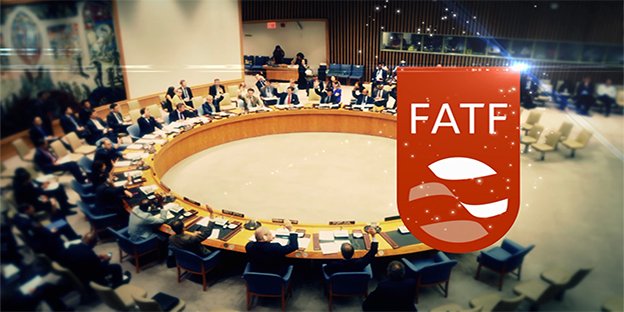After the Pahalgam attack, the Indian government took swift action. In an attempt to diplomatically isolate Pakistan, India made a move at the FATF summit in France on June 13, 2025, to place Pakistan on the grey list again. The Indian argument was that Pakistan was allegedly responsible for the Pahalgam attack and has been known to sponsor terrorist groups. But the question arises as to why the FATF is reviewing Pakistan’s status again?
Understanding FATF and its mandate
It is important to understand this by first looking into why the Financial Action Task Force (FATF) was created in 1989. The FATF has a three-pillar mandate: anti-money laundering, combating terrorist financing, and combating proliferation financing. The main task of the Financial Action Task Force (FATF) is to stop money laundering, not only in Pakistan but also elsewhere in the world, including developing nations like India, Bangladesh, and Afghanistan.
Suppose any country is discovered to be engaged in activities such as money laundering, terror funding, or the proliferation of weapons via technology. In that case, it will be placed on the grey list. A list after which an action plan is submitted to that country; if later it fails to comply, it can be placed on the blacklist. As of now, only two countries are included on the FATF blacklist: Iran and North Korea.
It is interesting to note that India has been involved in money laundering in Afghanistan, as it has been doing in Bangladesh. Indian officials blame Pakistan for funding terror groups; in reply, Pakistan has raised its defense spending, a move which some of its detractors allege is being diverted to the military. The same is being expressed by Israel, which sees Pakistan’s defense spending as a threat.
To add to all this, the RSS and BJP in India, in their treatment of the innocent Kashmiris, and Israel in their treatment of the people of Gaza, add to the ongoing debate.
Read More: Quad Unmoved by India’s Claims, No Blame on Pakistan for Pahalgam Attack
Pakistan’s history with FATF
Pakistan was first put on the grey list in 2012, largely due to pressure from India and the international community, which blamed Pakistan for supporting terrorist organizations. The pressure increased after the death of Osama bin Laden in Pakistan in 2011, by the United States.
Therefore, the United States, along with other countries, put pressure on the Financial Action Task Force (FATF) to take action. Pakistan had met all FATF requirements by 2014 and was later removed from the grey list.
India again blamed Pakistan for supporting terrorism in 2018. In response, the Financial Action Task Force (FATF) placed Pakistan again on the grey list and issued a 27-point action plan, which was later increased to 34 points.
The action plan covered steps against groups like Jamaat-ud-Dawa and individuals like Hafiz Saeed. Pakistan completed all 34 points by 2022 after years of reform and compliance and was later delisted from the grey list.
Financial oversight or political tool?
It is important to note here that the FATF is not an irresponsible body. However, its critics suggest that at times its actions are driven by geopolitical agendas and that it is most of the time utilized as an instrument of diplomatic pressure, especially against developing nations. This situation raises a relevant question: why is Pakistan always targeted, and other countries that are seriously accused are never targeted?
For example, even though there is massive evidence supporting this, the FATF has never raised any doubts regarding India’s involvement in money laundering or financing of terror. The Institute of Chartered Accountants has reported that around $100 billion is smuggled out of India every year. Apart from that, India’s own Enforcement Directorate has released reports that show links between Indian syndicates and terror financing. However, FATF has taken no official action.
Moreover, there is evidence available that the Modi government employs religious groups for political and violent ends. No action has been taken yet in this context. Such discriminatory treatment makes the FATF less credible and impartial.
Read More: How India’s Reaction to Pahalgam Threatens Regional Stability?
Rare case scenario and what must change
At this point, the global response appears to be the opposite. Several powerful countries have come out in support of Pakistan in response to India’s recent efforts at getting it grey-listed again. This shift suggests a potential shift in the world’s narrative—one that will not stand for unilateral pressure in the name of multilateral surveillance.
If FATF is to remain credible as a worldwide respected institution, it needs to go back to its processes. It needs to work strictly within its mandate, applying the same standard to all countries irrespective of political affiliation or geographic competition. FATF needs to be resistant to politicization. The world requires an independent and transparent financial watchdog, one that believes in justice, not the strategic agendas of the few.
History attests to the fact that the FATF decisions are informed by the geopolitical clout of some of the states. The repressive actions are avoided by the states that have powerful allies, whereas the weaker diplomatic powers are easily ensnared. Pakistan’s earlier grey listings in 2012 and 2018, partially because of pressure from the United States and India, are a reflection of this imbalance.
But on this single occasion, that strategy has failed. The current diplomatic support to Pakistan from countries such as China, Turkey, Japan, and even the United States has averted another grey-listing. The previous President Donald Trump acknowledged Pakistan’s fight against terrorism, mentioning the sacrifices of its forces. This is a significant change not only for Pakistan but for the credibility of global financial governance.

Saeed Awan
Saeed Awan is working as a Research Officer with the World Bank. He is also a final-year student of International Relations. He has previously been engaged with Lincoln Corner Karachi. He has a profound interest in research, diplomacy, and international engagement.



